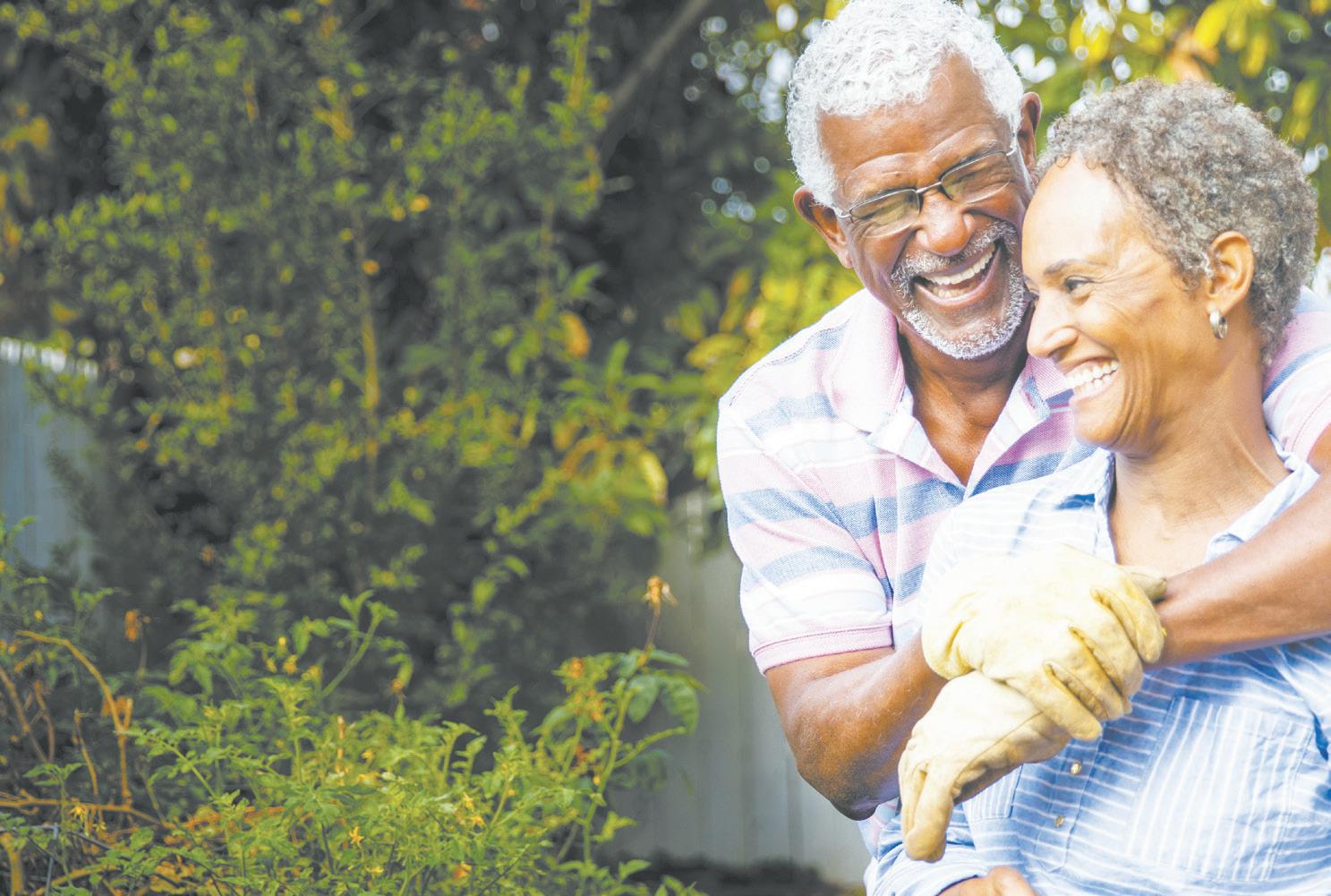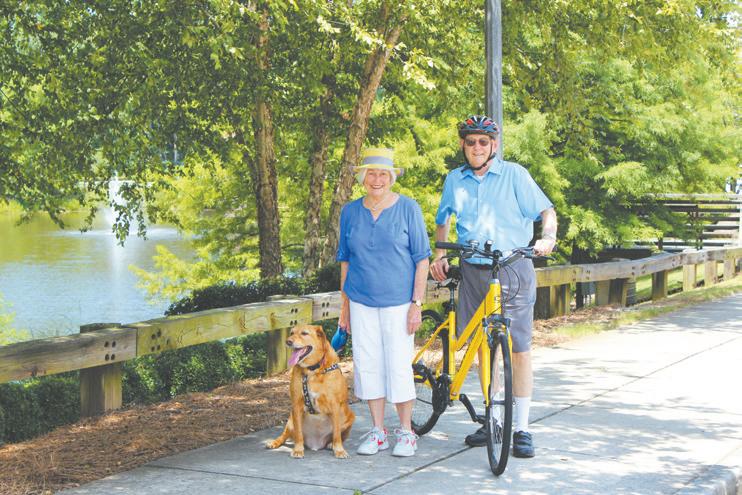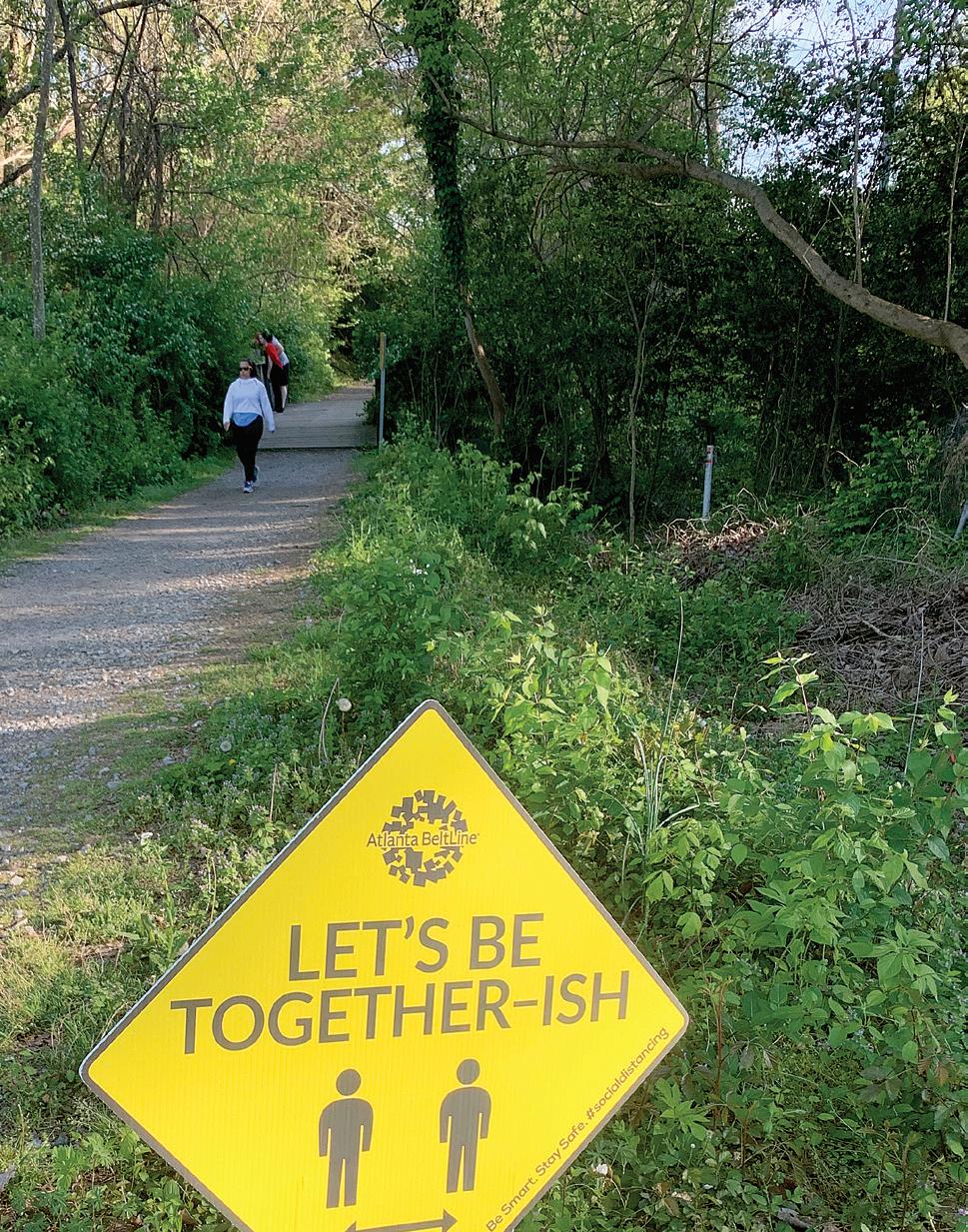
3 minute read
Atlanta History Center asks residents to save, donate materials about historic pandemic
By John Ruch
The coronavirus pandemic is a disaster that will be long remembered — and the Atlanta History Center is asking area residents, business owners and others to start preserving items now for posterity’s historical record.
In a new initiative called the “Corona Collective,” the Buckhead-based museum is seeking stories and materials of various types that preserve experiences of this desperate and challenging time. That includes physical items, though the History Center will not accept them during social distancing measures.
“Contemporary collecting is basically predicting the future, and someone in the future I’m sure will wish we had thought of something to save right now,” said Sheffield Hale, the History Center’s president and CEO,’ in a written statement. “A great example are artifacts from the Spanish Flu pandemic in Atlanta [in 19181919]; there were similar restrictions then, but few artifacts representing that.”
The initiative launched April 7, and within two weeks had received materials from more than 100 people, ranging from personal essays to photo collections to videos.
Paul Crater, vice president of collections and research services at the museum, said donated items include a 26-year-old woman’s account of how she nearly died of COVID-19 and a Google Docs file describing ways to help shuttered restaurants and their employees. Then there are more whimsical artifacts.
“We received a short documen- tary about this band who played social distancing shows in Ormewood Park before the stay-athome order, and they’re being tugged around in boat by a truck and they’re playing to people while people are sitting on their porches, and it’s really fun,” he said.
On the History Center’s website, Collections Manager Erica Hague gave an overview of the effort. “We are living through historic times—times that we need your help to document,” she wrote. “At Atlanta History Center, it is our mission to preserve and interpret the history of the greater Atlanta area for future generations—and we’re reaching out to you for help.
“… Though you may not realize it, you’re already documenting this time of constant change. You create the historic record when you take a photo of something that makes you feel more connected while self-isolating. Maybe you’ve seen a sign, received an email, or in some other way have connected with the rapidly changing world in the wake of [the] coronavirus. Perhaps it was the empty toilet paper aisle at Kroger, a furlough notice, the cancellation of a planned trip, emails from your child’s school, or a note to an at-risk loved one. Maybe it’s the receipt for a donation you made to support a local small business or essential employee.”
Hale noted that commonplace items can be valuable now, because they are often lost in the long run, not preserved because they were seen as not special at the time. “That which is most common shall be least common,” he said, citing a common phrase in the History Center’s Civil War collecting.
Crater said that similar efforts from the DeKalb History Center and the Senator John Heinz History Center in Pittsburgh, Pennsylvania, were among the inspirations for the “Corona Collective.”
A particular model for gathering history as it happened, he said, was a similar program by the Missouri History Center during the 2014 Ferguson police-shooting protests.
Choosing which items to preserve in the museum’s collection -- and even how to preserve such items as that Google Docs file with its hundreds of hyperlinks -- are among the challenges of the effort, Crater said. “But I’ve always had this aspiration to do something like this and to be nimble like this,” he added, and the opportunities are big, too.
One goal is to use the material as starting points to solicit donations of physical items and oral histories when it is safe to do so. Another possibility: pop-up exhibits highlighting some of the neighborhood-oriented artifacts and inviting residents of those areas who might never have visited the museum before.
The museum chose to seize the moment and collect history in action that affects everyone, Crater said, and the submissions so far show a “sense of civic involvement and humanity that is really compelling to me.”
The History Center will consider materials from residents of cities in the immediate metro Atlanta area, including Brookhaven, Dunwoody and Sandy Springs. Residents of other areas will be directed to local historical societies elsewhere, said spokesperson Howard Pousner.


The museum’s staff is taking photos in the neighborhoods as part of the collection as well, with many of the images available on the website at atlantahistorycenter.com/research/coronavirus-collective. The website includes details about what types of materials will be accepted, copyright and other usage rights, and other information about the “Co-
Collective.”
Other Pandemic History Projects
The following organizations also are seeking pandemic items and memories from metro Atlantans.
DeKalb History Center
“The COVID-19 Chronicles” dekalbhistory.org
Heritage Sandy Springs

“COVID-19 Community Journal Project” facebook.com/heritagesandysprings
Georgia Historical Society
“COVID-19 in Georgia” georgiahistory.com










